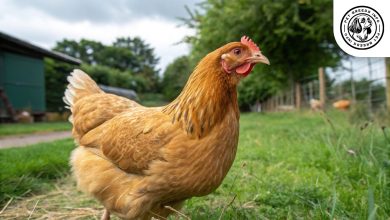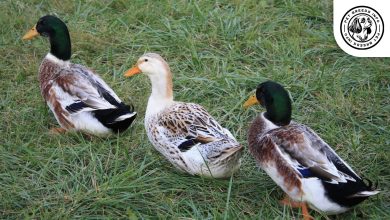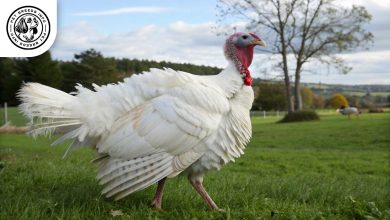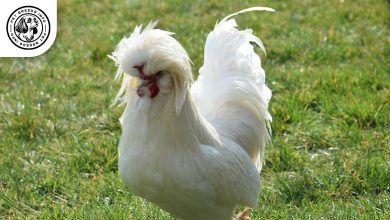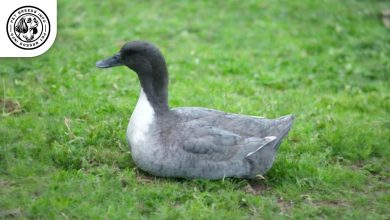Shetland Goose Breed: Personality, Lifespan, Food & Care
General Introduction of the Breed
The Shetland Goose is a rare and heritage goose breed originating from the Shetland Islands, Scotland. These geese have been traditionally bred for their hardiness and adaptability to harsh coastal climates.
They are one of the few remaining goose breeds native to the British Isles and are valued for their excellent foraging abilities and manageable temperament.
Table of Contents
| Common Name: | Shetland Goose |
| Scientific Name: | (Not provided in the text) |
| Origin: | Shetland Islands, Scotland |
| Size: | Medium-sized (Males: 12-14 lbs, Females: 10-12 lbs) |
| Lifespan: | Around 10-15 years |
| Talking Ability: | (Not applicable – geese do not talk) |
| Colors: | Typically white with gray or dark markings; some may have bluish-gray coloration. |
| Noise Level: | (Implied to be moderate – alert but not excessively aggressive compared to other breeds) |
| Social Behavior: | Sociable, prefers having companions (small flocks); generally good with other poultry and can bond with humans. |
Physical Characteristics
Shetland Geese are medium-sized birds. Males typically weigh around 12-14 lbs (5.5-6.5 kg), while females weigh slightly less at 10-12 lbs (4.5-5.5 kg).
The breed is known for its striking feather pattern—typically white with gray or dark markings along the head, back, and wings. Some may also have a bluish-gray coloration.

They have dark eyes, which contrast nicely with their bright orange beaks and legs.
The body is compact and well-proportioned, with a slightly curved neck and short, strong legs. Their feathering provides insulation, making them well-suited for colder environments.
Read More: Spectacled Parrotlet
Personality and Temperament
Shetland Geese are intelligent, alert, and excellent foragers. They are known for their independence but can develop a bond with their owners if raised from an early age.
They are generally calm and docile compared to other goose breeds, making them manageable for small farms and homesteads.
While they can be protective of their nests, they are not excessively aggressive. They interact well with other poultry and livestock.
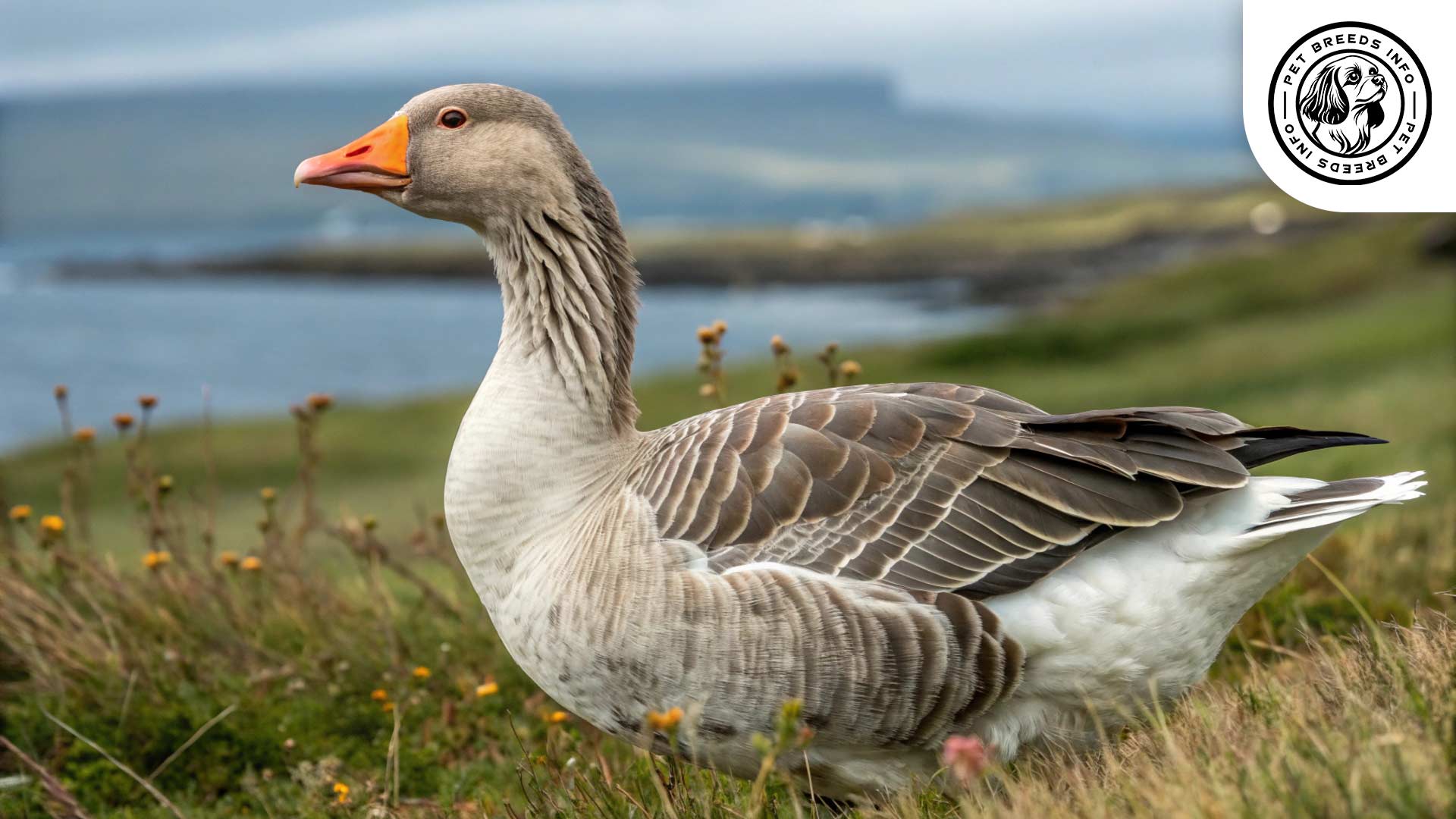
Care and Maintenance Requirements
Shetland Geese require ample space for grazing, preferably in a pasture or open area with access to water. They thrive in free-range environments where they can forage for natural food.
They have moderate grooming needs, as their feathers naturally repel dirt. However, their water access should be clean to maintain feather health.
Since they originate from a cool-weather region, they are cold-tolerant but need shade and shelter in hot climates.
Basic maintenance includes regular health checks, access to clean drinking water, and protection from predators.
Diet and Nutrition
Shetland Geese are primarily grazing birds that consume grass, weeds, and grains. They do well on a diet of high-quality waterfowl pellets supplemented with fresh greens and garden vegetables.
They should not be fed processed food, bread, or sugary items, as these can negatively affect their digestive health.
Portion sizes will depend on their access to grazing, but free access to fresh water and occasional grit for digestion is essential.
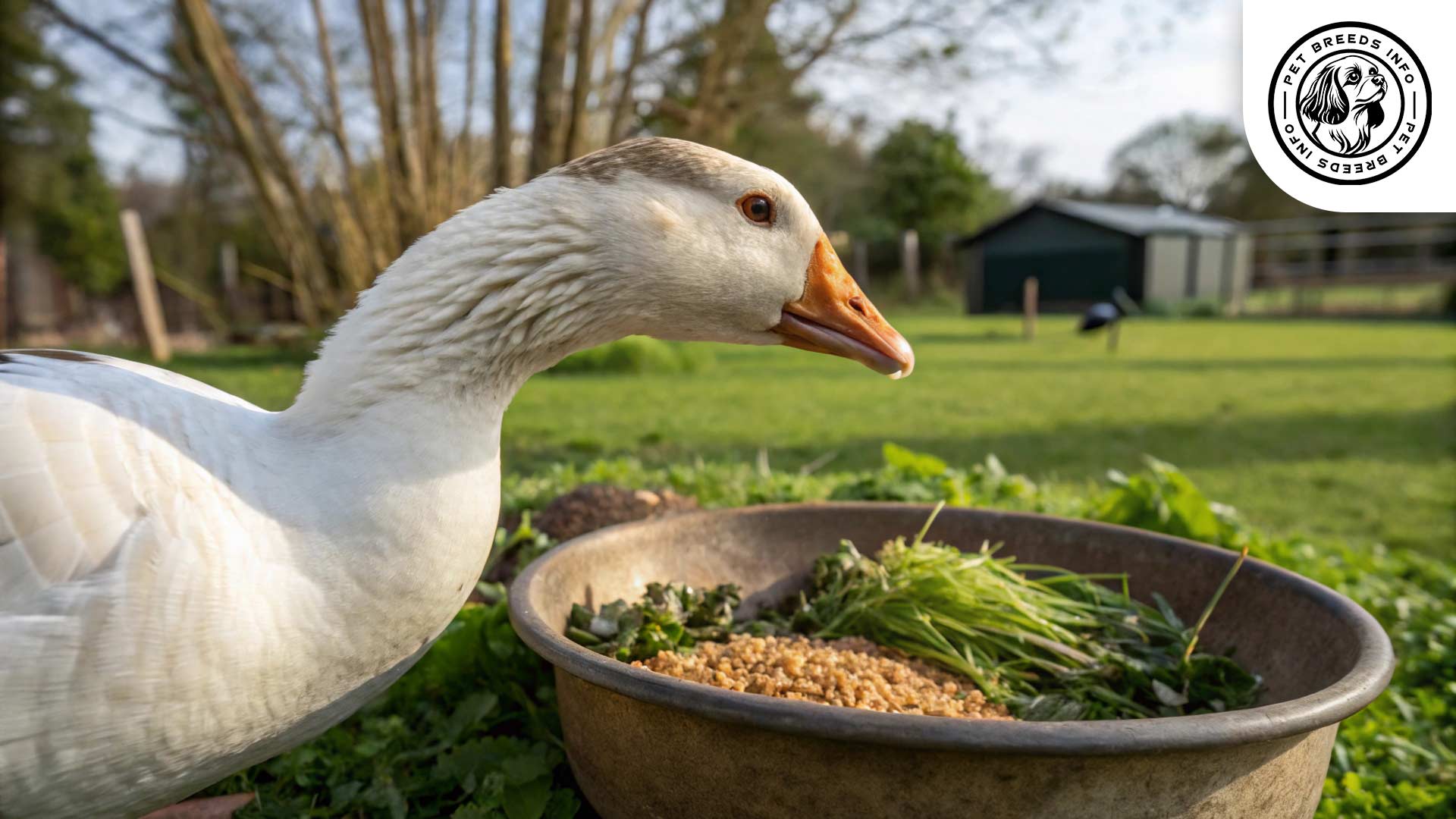
Health and Common Medical Issues
The Shetland Goose is a hardy breed with few common health problems when properly cared for. However, they are susceptible to conditions such as bumblefoot (due to rough or wet ground conditions) and respiratory infections in damp environments.
Regular deworming may be necessary if they graze in parasite-prone areas.
Their average lifespan is around 10-15 years when well-kept.
Basic veterinary care, vaccinations where necessary, and clean living environments help maintain their overall health.
Read More: Short-billed Black Cockatoo
Training and Behavior Management
While geese are not typically trained in the same manner as dogs, Shetland Geese can become accustomed to human interaction and handling with patience.
Early exposure to humans and consistent feeding routines help them recognize their caretakers.
They can be trained to respond to feeding calls, and with patience, they may learn to follow basic commands related to their movement and pen access.
Interaction with Other Animals and Humans
Shetland Geese are sociable birds that prefer having companions, making them ideal for keeping in small flocks.
They are generally good with children if raised together but should always be supervised to prevent accidental pecking.
They coexist well with other poultry such as ducks and chickens and can even help deter small predators due to their alertness.
While independent, they form bonds with their owners over time, especially when raised from goslings.
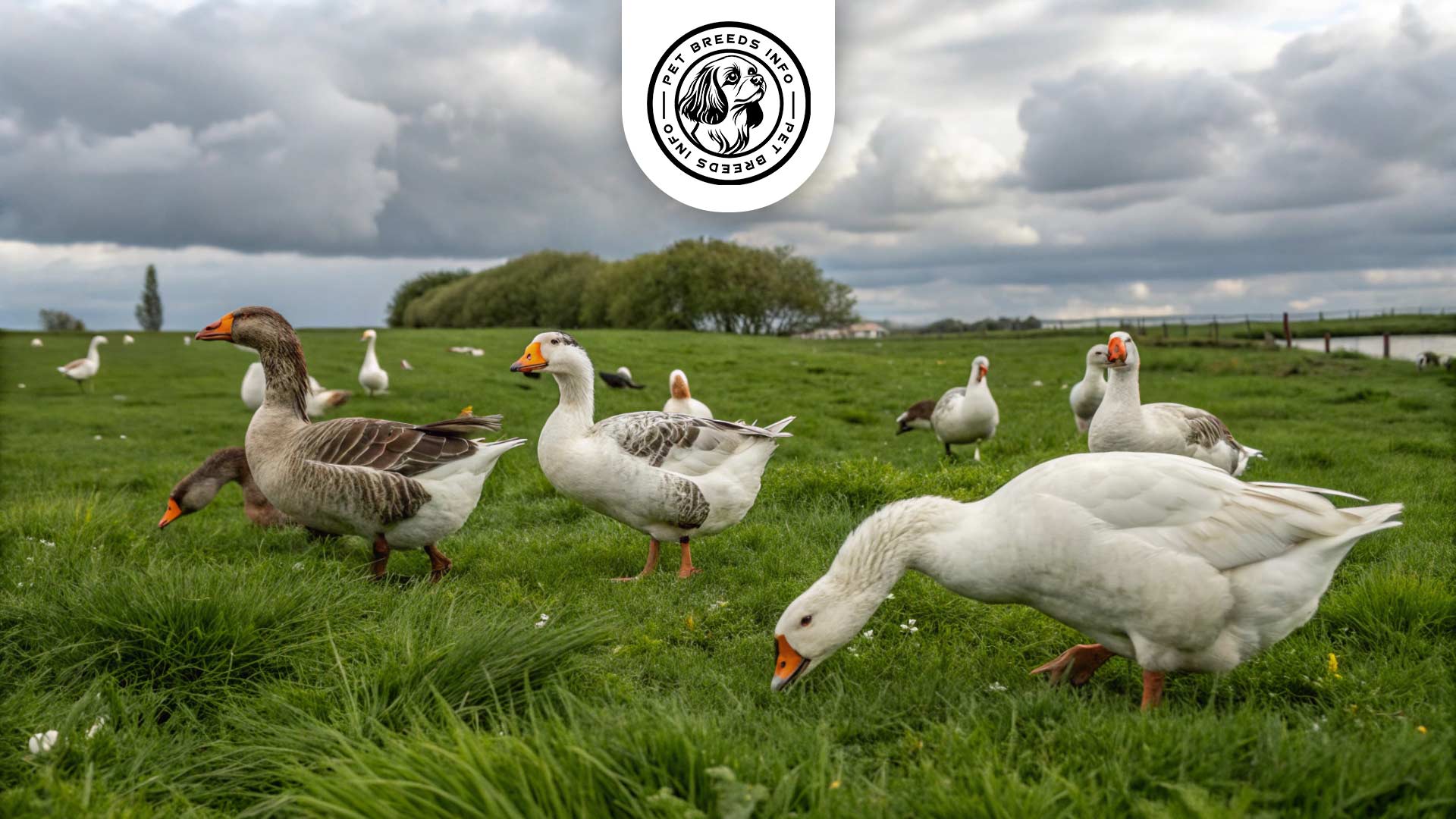
Price and Availability
Shetland Geese are a rare breed and may not be as widely available as more common geese. Prices vary, but goslings typically cost between $20 and $50 each, depending on the breeder.
They are best obtained from reputable waterfowl breeders or conservation groups focused on preserving heritage breeds. Some hatcheries and farms specializing in rare poultry may carry them.
Potential owners should ensure they have adequate space and resources before purchasing, as geese require proper care and commitment.
Conclusion and Final Thoughts
The Shetland Goose is an excellent choice for those looking for a hardy, self-sufficient breed with low-maintenance requirements.
They are best suited for small farms, homesteads, or large backyard spaces where they can graze freely.
Before choosing this breed, owners should consider their space availability, potential predator threats, and the need for fresh water access.
Overall, Shetland Geese are a rewarding and useful breed, providing eggs, natural pest control, and companionship for those who appreciate traditional and rare poultry breeds.
Read More: Khaki Campbell Duck
FAQ
What is a Shetland Goose known for?
Shetland Geese are known for their hardiness, foraging abilities, and manageable temperament.
How big do Shetland Geese get?
Males typically weigh 12-14 lbs, and females weigh 10-12 lbs.
Are Shetland Geese good with other animals?
Yes, they generally interact well with other poultry and livestock.
What do Shetland Geese eat?
They primarily graze on grass, weeds, and grains, supplemented by waterfowl pellets and vegetables.
Are Shetland Geese rare?
Yes, they are considered a rare and heritage breed.
